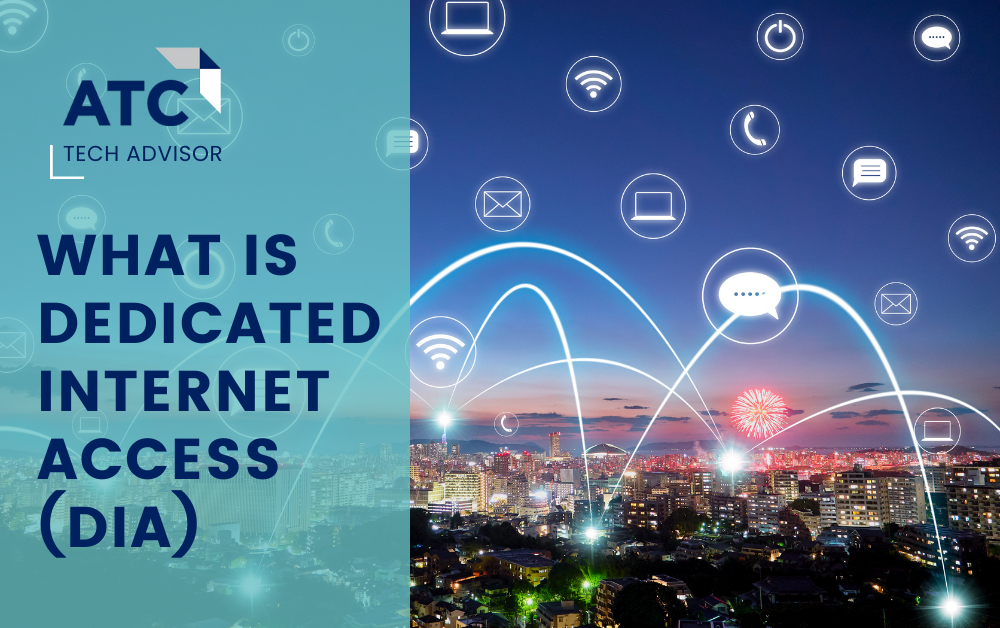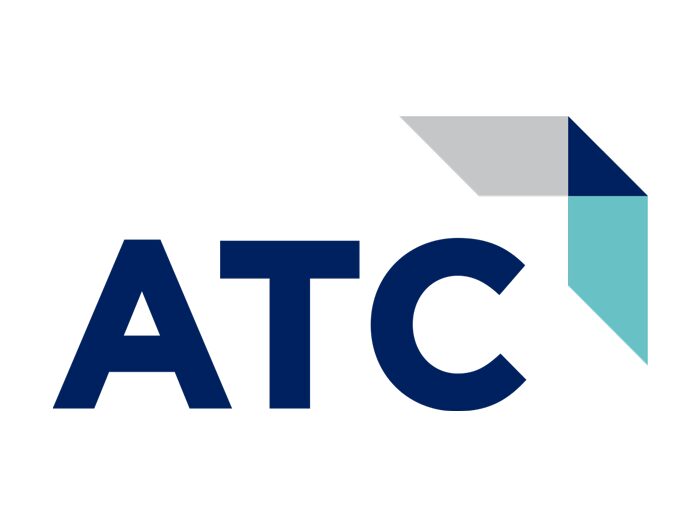
Businesses have two common choices when it comes to internet access, either through a shared connection, such as a cable company, or DIA (Dedicated Internet Access).
With shared internet access, other users that on your internet “loop” share access and bandwidth with you. These “other users” can be businesses or residential housing. If your business is near a neighborhood on the same “loop,” your internet speeds can be affected at 3 p.m. when kids return home from school and jump on Xbox.
But what is DIA internet?
With dedicated internet access, only one user or business has access to a single internet connection.
Most people outside the professional world rely on shared internet access for their homes, especially if they are using a cable or DSL connection. Typically, this type of connection is perfect for watching videos, using social media, gaming, or other web-browsing behaviors.
However, a shared connection is less than ideal for a business organization. It’s okay as a backup connection, but not as your primary connection. DIA internet access is the better choice because of the “dedicated,” synchronous speeds and better SLAs (Service-Level Agreement) that come with a dedicated connection.
What Are Key Differences Between Shared Internet and Dedicated Internet Access (DIA)?
Data center and cloud applications perform better with a dedicated internet access (DIA) circuit, instead of the average, cost-effective “business” internet access, types like coax cable, Fios, U-verse, and FiOptics.
The preeminent flavor of DIA is Metro Ethernet Fiber from the likes of Spectrum, Comcast, AT&T, Windstream, CenturyLink, Cincinnati Bell, Nitel and others. Which provider is available to you often depends on your location. Regardless of circuit provider, DIA circuits and thus Metro Ethernet Fiber always include the following five benefits:
(Benefits provided by Network World here.)
1. Guaranteed Bandwidth
With DIA internet access, your company is guaranteed to receive the bandwidth you purchased, 100 percent of the time. If your company purchases a 100MB dedicated fiber internet connection, you will always receive 100MB, or close to it.
This is helpful because a company can decide on the speed they require, purchase it and rely on it to be a consistent speed every minute of the day.
This is different from shared connections, where the speed your company signs up for is the maximum speed you will receive (like at 3 a.m. when virtually nobody in your area is online), but usually, you will only get a portion due to other internet activity on the same “loop.”
With shared connections, the actual speed is unpredictable and fluctuates throughout the day depending on the ISP’s network traffic.
2. Synchronous Upload and Download Speeds
If your company purchases a 100MB DIA internet access circuit, both your download and upload speed/bandwidth are always guaranteed at 100MB. Fast upload speed is important if your company has a lot of remote users, cloud apps, VoIP, etc.
Cheaper shared internet connections typically have a fast download speed and a significantly slower upload speed. For instance, it’s common to see an inexpensive shared internet connection with a maximum download speed of 100MB and a maximum upload speed of only 10 MB.
3. Better Throughput
Has your company ever experienced slow Internet speeds, yet your speed test says your bandwidth is high?
If your company doesn’t have time for slow internet, DIA internet access might be the answer.
A little-known secret in the ISP world is the bandwidth your company buys is not the circuit’s actual throughput. It’s just the bandwidth at which the circuit accesses the ISP’s backbone network. Once your traffic hits the network, however, it only moves as fast as the network will allow.
A good way to think about this is a freeway on-ramp (i.e., your circuit) vs. the actual freeway (i.e., the ISP’s backbone network). The on-ramp might be huge and wide-open but if the freeway is packed with traffic, it will take you a long time to reach your destination. DIA is like having your very own private highway dedicated to you.
ISPs keep their DIA customers on a high-capacity, under-subscribed backbone network. Shared internet connections often run on jammed, over-subscribed networks.
Therefore, despite having the same circuit speed, a 100MB DIA internet access connection will almost always be faster than a 100MB inexpensive, shared Internet access connection.
4. The Service Level Agreement (SLA)
With real-time applications like VoIP, video and remote desktop growing in popularity, things like latency, packet loss and jitter have become extremely important for your company’s internet connection. Shared internet connections often struggle in these areas.
Piggy-backing on the benefit of better throughput: Since DIA traffic runs over a better backbone network, ISPs usually slap a guarantee on the quality of your internet traffic, called a service level agreement (SLA).
A typical dedicated Internet access SLA will guarantee:
- Network uptime
- Latency
- Packet loss
- Jitter (only guaranteed with some ISPs)
If your company has dedicated Internet access and your ISP fails to meet its SLA, they will give you a monetary refund based on the details outlined in your original contract.
5. Better Guaranteed Response Time
DIA internet access circuits almost always come with a significantly better guaranteed response time than inexpensive, shared business internet connections. ISPs typically provide a four-hour guaranteed response time for DIA trouble tickets and a “best effort” response time for shared internet connection trouble tickets.
If your company has a DIA internet access circuit, rest assured your issue is a much higher priority to the ISP than a customer with a $100/month shared internet access circuit.
Again, you get what you pay for, including customer service.
Next Steps
The next time you hear an ISP touting a 100MB “business” connection for $60/month, you’ll know why it’s so inexpensive. Inexpensive connections are extremely useful in the right situations, but in the professional world, they don’t stand up to a fiber DIA connection.
Contact ATC to find out what dedicated internet access services are available for your location(s).
Check out Dedicated Internet Access Market: Drivers and Restraints.








